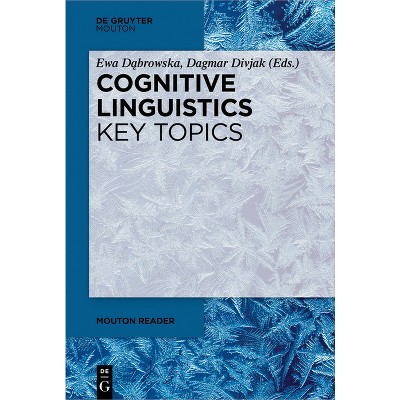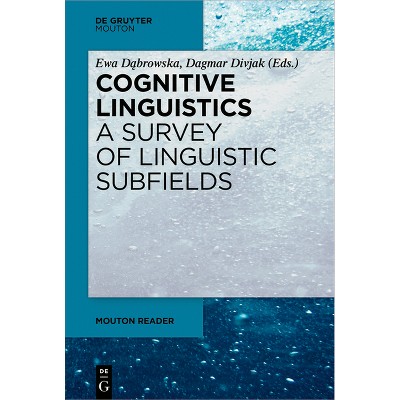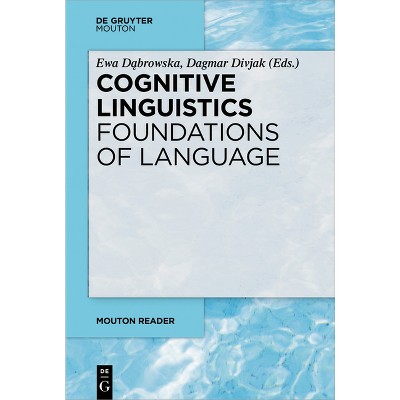Sponsored

What It Takes to Talk - (Cognitive Linguistics Research) by Paul Ibbotson (Paperback)
In Stock
Sponsored
About this item
Highlights
- This book puts cognition back at the heart of the language learning process and challenges the idea that language acquisition can be meaningfully understood as a purely linguistic phenomenon.
- About the Author: Paul Ibbotson, The Open University, Milton Keynes, UK.
- 234 Pages
- Language + Art + Disciplines, Language Arts
- Series Name: Cognitive Linguistics Research
Description
About the Book
This book puts cognition (back) at the heart of the language learning process and challenges the idea that language acquisition can be meaningfully understood as a purely linguistic phenomenon. The new discipline of developmental cognitive linguistiBook Synopsis
This book puts cognition back at the heart of the language learning process and challenges the idea that language acquisition can be meaningfully understood as a purely linguistic phenomenon. For each domain placed under the spotlight - memory, attention, inhibition, categorisation, analogy and social cognition - the book examines how they shape the development of sounds, words and grammar. The unfolding cognitive and social world of the child interacts with, constrains, and predicts language use at its deepest levels. The conclusion is that language is special, not because it is an encapsulated module separate from the rest of cognition, but because of the forms it can take rather than the parts it is made of, and because it could be nature's finest example of cognitive recycling and reuse.From the Back Cover
This book puts cognition back at the heart of the language learning process and challenges the idea that language acquisition can be meaningfully understood as a purely linguistic phenomenon. For each domain placed under the spotlight - memory, attention, inhibition, categorisation, analogy and social cognition - the book examines how they shape the development of sounds, words and grammar. The unfolding cognitive and social world of the child interacts with, constrains, and predicts language use at its deepest levels. The conclusion is that language is special, not because it is an encapsulated module separate from the rest of cognition, but because of the forms it can take rather than the parts it is made of, and because it could be nature's finest example of cognitive recycling and reuse.
About the Author
Paul Ibbotson, The Open University, Milton Keynes, UK.






![Cognitive Sociolinguistics Revisited - (Applications of Cognitive Linguistics [Acl]) (Paperback)](https://target.scene7.com/is/image/Target/GUEST_22046a89-3dff-41ac-b855-2db515b5713d)



![Cognitive Individual Differences in Second Language Acquisition - (Trends in Applied Linguistics [Tal]) (Paperback)](https://target.scene7.com/is/image/Target/GUEST_ca93c469-8e14-4dfb-b18c-d0ed694fc794)
